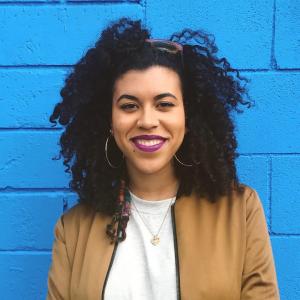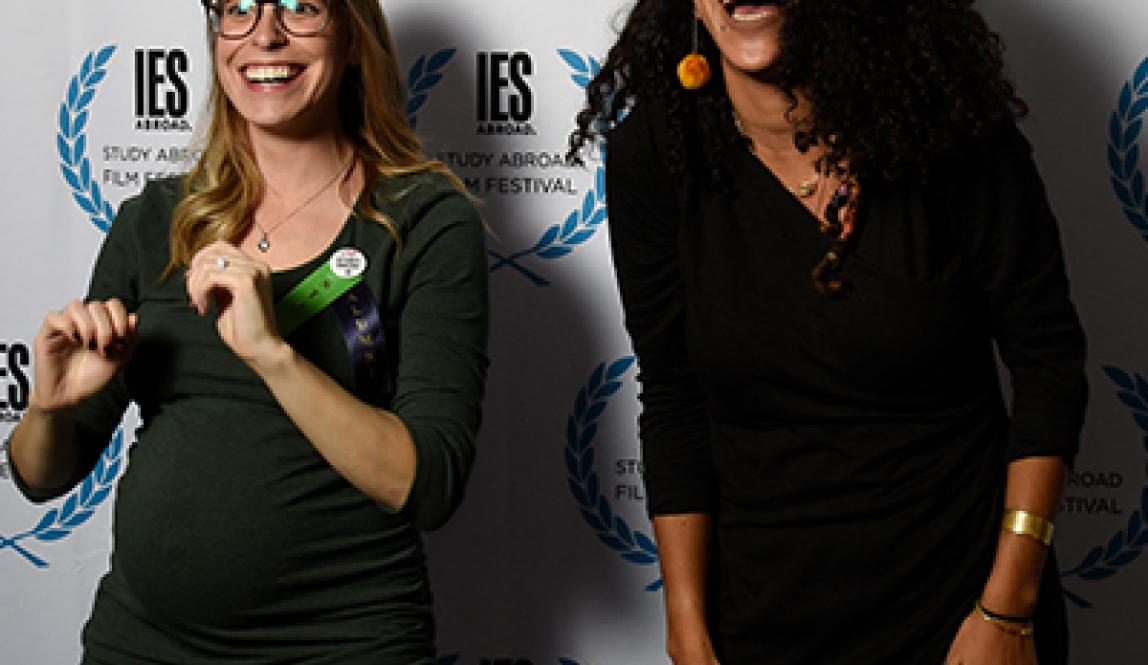Interview
What words would you use to describe your identity/identities?
I identify as a bi-racial cis-gender black woman. I'm also a painter, introvert, Cancer (zodiac sign), and pickle-fanatic. I am a first-generation college student, and was the first in my family to study abroad.
What motivated you to choose to study abroad?
I only had one short international travel experience before study abroad, and as a first-generation college student, no one in my family had ever studied abroad—this made the whole concept feel both novel and improbable. Thankfully the college I attended had a strong emphasis on internationalism, which really normalized and encouraged the opportunity. It was an expectation that to have a fully rounded educational experience, you would go abroad. Being in that kind of environment was the push I needed to make it happen.
When you studied abroad, did your identity(ies) influence your experience in significant and/or surprising ways? If so, how?
I specifically chose to go to Rio de Janeiro, Brazil because being a bi-racial black woman, there are not a lot of places where the majority identifies similarly to me race-wise. I felt it was a once in a lifetime chance to immerse myself in a population comprised of many mixed-race (black/white) individuals. In Rio, almost half of the population identifies that way.
Throughout my time there, I was surprised at how much my national identity stood out, and so even though, phenotypically speaking, I could blend in with the population, I learned a lot about the visibility of, and privilege tied to my "Americanness". On top of that, it was a unique opportunity to live in another country with the same deep ties to the Trans-Atlantic Slave Trade but shaped by its own particular cultural and political forces. I wanted to explore the different trajectories of those of us from the African Diaspora. We who have shared origins and shared histories of displacement and trauma, yet possibly have different pathways and strategies to liberation.
Has studying abroad impacted your educational and/or professional aspirations or path? If so, how?
After returning from study abroad, I received IES Abroad's first ever Blogger of the Year Award for my video blog. Shortly after graduating from college, I joined IES Abroad's Marketing Department. I've been here for over 3 1/2 years and was recently promoted to the Video and Social Media Manager position. So, it's very obvious that studying abroad led me straight into the field of international education, which was not on my radar before going abroad, but it's something that I'm deeply thankful to be a part of now!
What experiences or skills gained from studying abroad continue to influence your life now?
Open-mindedness, the ability to observe and appreciate difference without judgement, a radical ability to trust in myself, an acute awareness of my personal strength and my ability to face adversity, increased cultural competence and flexibility, and an understanding that accepting the flow of life (the challenges, obstacles, and surprises) is much more rewarding than resisting it. Also, joy of the unknown, acceptance of conflicting truths, and appreciation of nuances.
In one sentence, tell students who identify similarly why studying abroad is a good idea, particularly for them.
I think studying abroad, especially for students of marginalized identities, is critical. It's a reminder that the world is not only available for us to explore, but that we are active participants in shaping it, despite the limitations we may feel at home. After going abroad you come back with a newfound confidence that gives you the tools you need to better advocate for yourself. You may even find that your place and purpose in the world has been crystallized. Above all, studying abroad is an experience that bolsters who you are and what you believe you are capable of, forever. Cultivating a diverse array of future global leaders who are compassionate and critical and culturally competent begins right here, right now, through study abroad.









